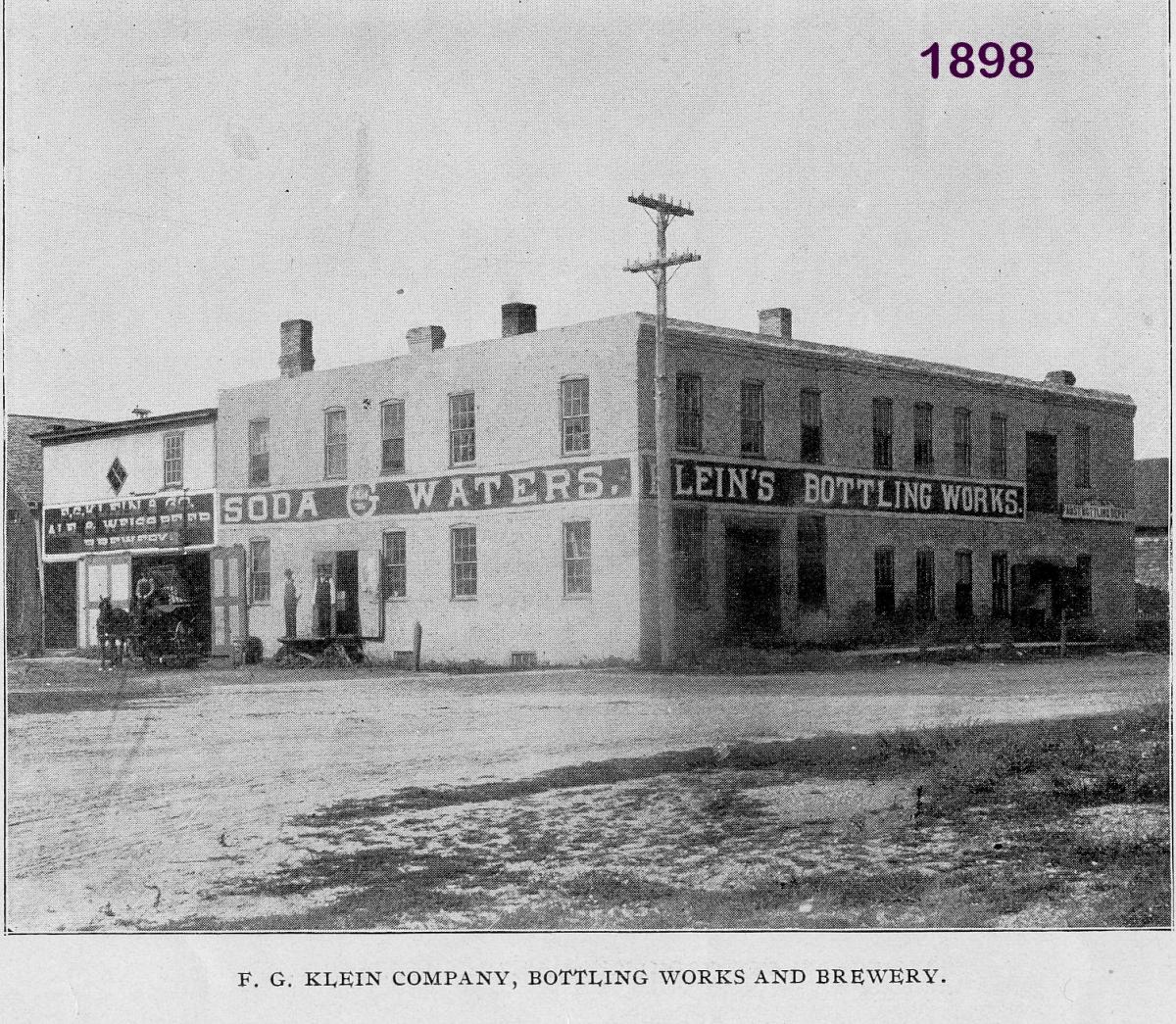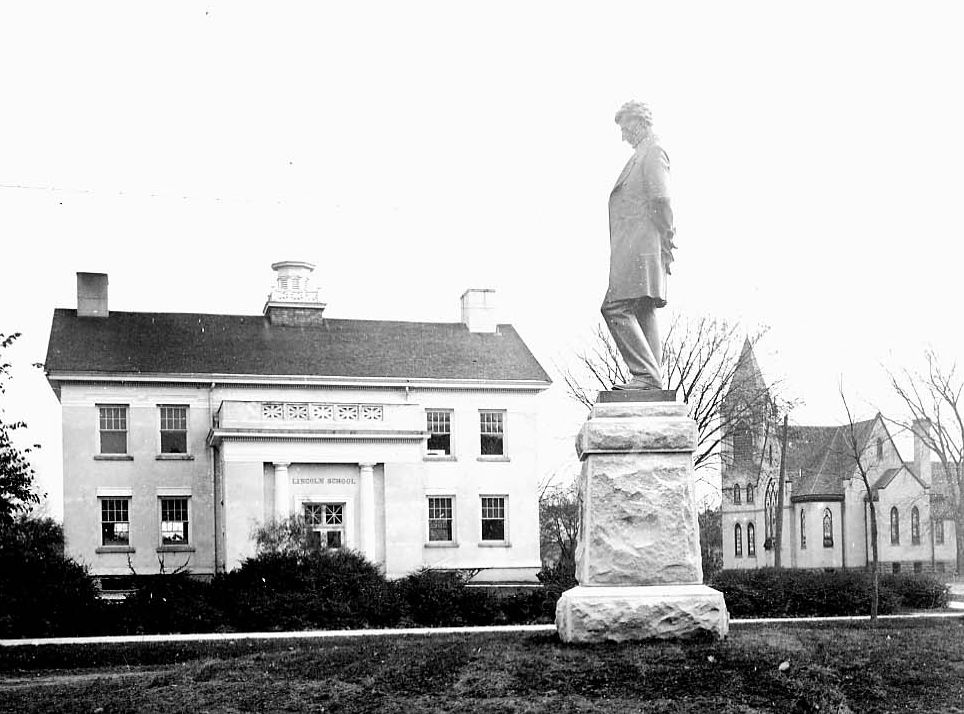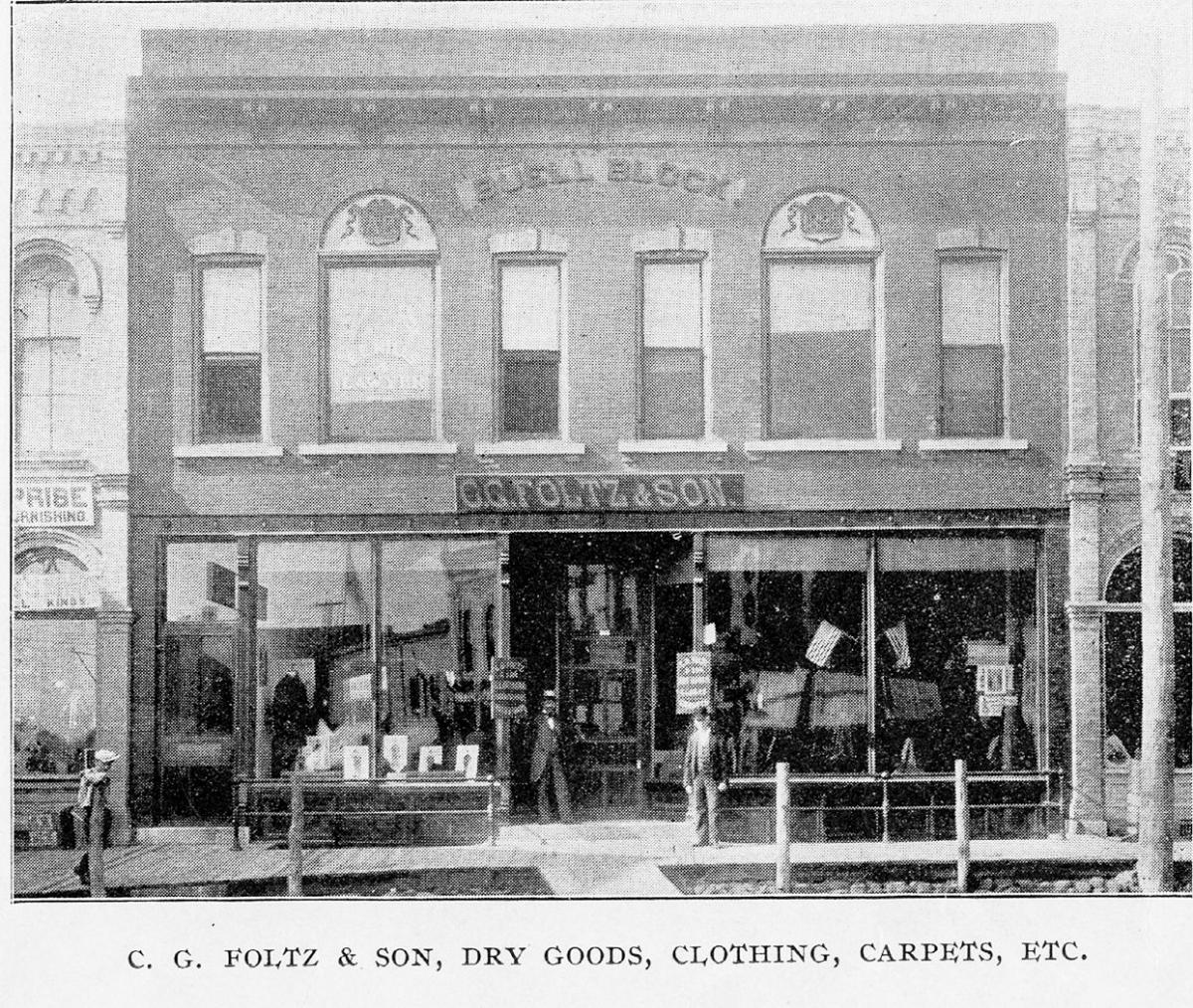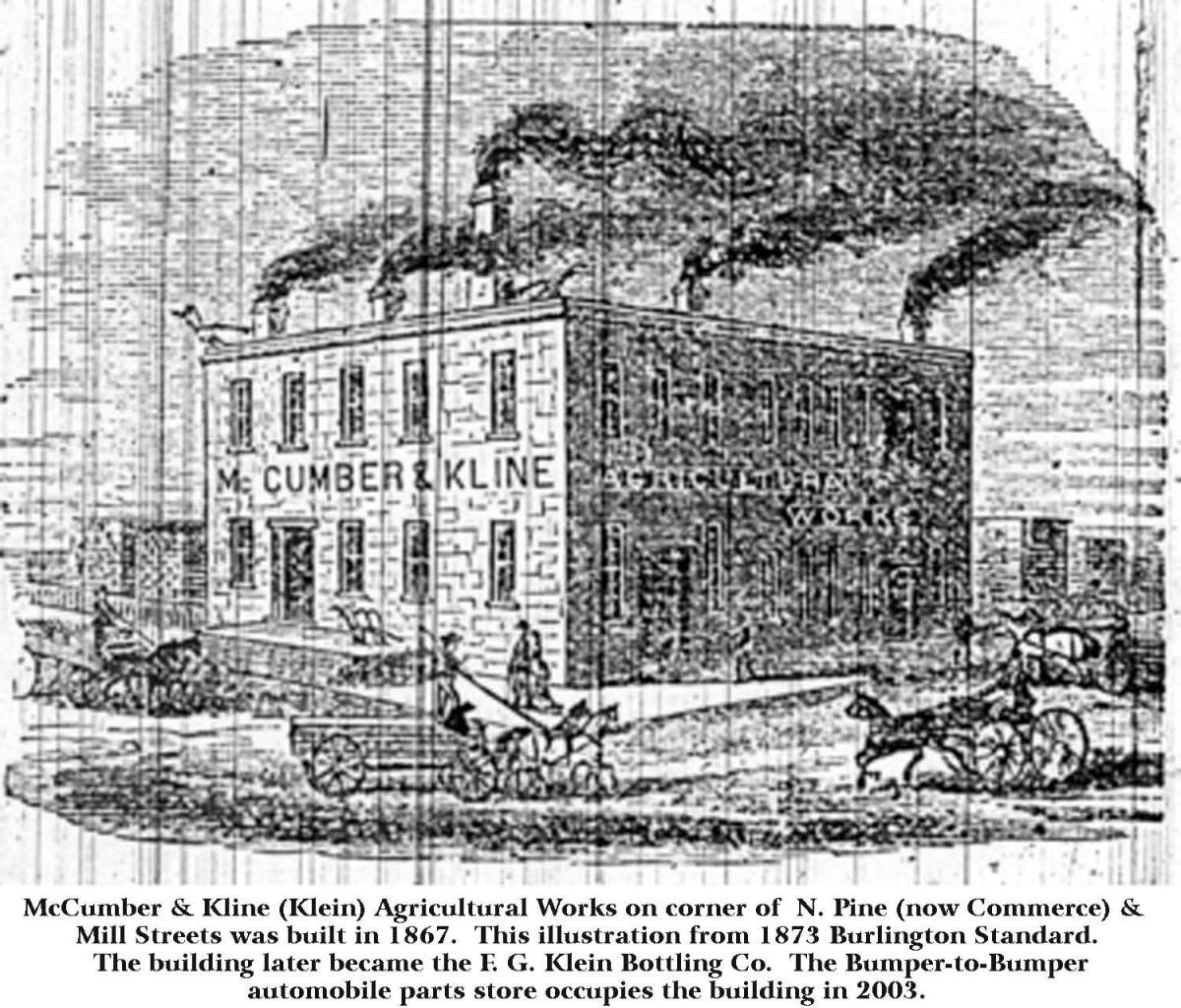Pioneer Burlington Life Recalled
RECALLS PIONEER BURLINGTON LIFE
The following article appeared in the August 1, 1919, Standard Democrat
C. B. Williams, Sioux City, Iowa, Visits Home of His Childhood
Old Landmarks Fast Disappear
A few days ago the evening passenger from Chicago brought a stranger to Burlington. Fifty years ago, a boy of ten, he knew every nook and corner of the village. He was acquainted with nearly every person, and with his playmates had access to many of the homes. He knew where to find the best apples in the Perkins orchard, and could have told you the best places along the river to fish and swim. Would anybody remember?
Then there was but one railroad, with its station a mile out, but now the train is slowing up near the Perkins flour mills, and comes to a stop at the station in the old fair ground. Such fairs as Burlington had in those days, with attractions that drew from far over in adjoining counties. And every season Yankee Robinson circus, pulling in their wagons with tired horses, found the country roads lined with expectant youngsters, eager for their coming.
 The stranger stops near the Klein pop factory (left) – the old McCumber & Williams wagon and plow shop – and shies his eyes across the street, but the tannery is gone. Yes, that’s the very place where he used to go every day, and the office was near the door, where so many private sessions were had with father, alone.
The stranger stops near the Klein pop factory (left) – the old McCumber & Williams wagon and plow shop – and shies his eyes across the street, but the tannery is gone. Yes, that’s the very place where he used to go every day, and the office was near the door, where so many private sessions were had with father, alone.
He goes to the hotel and signs the register: "C. B. Williams, Sioux City, Iowa." A traveling salesman representing a Chicago firm.
Following the old familiar street to the south he locates, with but little difficulty (then familiarly called) the "cobble stone house." Rejuvenated with a coat of cement, and a spacious porch in front, it is still to him, the "cobble stone house." Here, in this humble house was one of the ideal homes of the village. Four small children played around the door. A shout warns the mother that father is near. A smile and a kiss at the door always.
 The old school house could not be disguised, with its new cement wall and massive pillars, and recalled the time when Miss McBeth had charge of the intermediate department. The red fence, with its high stiles, is gone and the grounds are set to grass and beautiful shrubbery, showing that it is not the playground of the long ago. Taking note of the size of the old playground, it seems strange that we could never have played "scrub" here, and little wonder that the ball often found its way over into Dr. Dyer’s and Mrs. Faitoute’s yards. The Lincoln monument, the gift of Francis W. Meinhardt, a seatmate of the writer, is a fine piece of work, will keep the donor in loving remembrance.
The old school house could not be disguised, with its new cement wall and massive pillars, and recalled the time when Miss McBeth had charge of the intermediate department. The red fence, with its high stiles, is gone and the grounds are set to grass and beautiful shrubbery, showing that it is not the playground of the long ago. Taking note of the size of the old playground, it seems strange that we could never have played "scrub" here, and little wonder that the ball often found its way over into Dr. Dyer’s and Mrs. Faitoute’s yards. The Lincoln monument, the gift of Francis W. Meinhardt, a seatmate of the writer, is a fine piece of work, will keep the donor in loving remembrance.
Those remembered, attending school then: Francis Meinhardt, Frank Perkins, Oscar Neuhaus, George Crane, Fred Blake, Eugene Nims, George Darling, Frank Durgin, Fred Hempstead, Will Leuck, Alex Riel, Eddie Sawyer, Angus Forbes, Charles Sawyer, Max Martenson, Virgil Avery, Emma Benson, Alma Meinhardt, Della Gaylord, Rilla Gaylord, Dema Rooker, Alice Littlefield, Alma Neuhaus, Della Graham, Lillie Nims, Ella Nims, Menzo Peck, Orville McLaughlin, Luverne Stiles, Fred Barns, Charlie Barns.
Short visits were had with William Hubbard, L. J. Smith, C. G. Foltz, C. A. Jones, George Norton, Mr. and Mrs. A. Zwiebel, Mr. and Mrs. F. Stang, Will Rein, Miss Ellen Callahan, F. G. Klein and Dr. H. H. Newbury and his mother, the last named the only one to remember the stranger.
Burlington has made a nice growth and improvement. Paving and other modern improvements give it a decided metropolitan appearance. The Forbes, Perkins and Squire Barnes houses are no longer the finest in town. In every direction are seen scores of the finest homes with well-kept lawns. The trees have so grown as to add much to the town’s beauty.
 Only one man still in business – C. G. Foltz – in active business for fifty-seven years, in the same location (right), seems good for several more years of active service.
Only one man still in business – C. G. Foltz – in active business for fifty-seven years, in the same location (right), seems good for several more years of active service.
Some of those in business fifty years ago he recalled were: P. M. Perkins, flour and woolen mills; McCumber & Williams, wagon and plow shop; A. Zwiebel, machine shop; Wells Bros., groceries; Mr. Hempstead, groceries; F. L. Nims, planing mill; Loomis Bros., hardware; Orson Sheldon & Son, hardware; Cooper & Merrick, drugs; Charles Wood, drugs; Mr. Stang, shoes; S. D. Littlefield, jeweler; Mr. Wehmhoff, jeweler; Mr. Meinhardt, general merchandise; Frank Reuschlein, general merchandise; Mr. Hayes, harness; Mr. Jones, hotel; Mr. Devereaux, editor Standard; Mr. Neuhaus, notions; Mr. Kessler, photographer; Mr. Edmunds, ice; Barney Brehm, dray; J. Wambold, blacksmith; Dr. Dyer, Dr. Cooper, Dr. Darling, physicians; Squire Royce, lawyer.
Edgar Williams and George O. Law, brothers-in-law, with their young wives, left Rome, N. Y., in the spring of 1859, and settled on a Voree farm near Burlington. They united with the Burlington Baptist church, and their brother, Rev. E. B. Law, just out of college, was called to serve as pastor. Agriculture did not prove very lucrative to the young farmers, and after two years they sold the farm. Mr. Williams was a skilled mechanic, having served his apprenticeship in the east. He bought an interest in the wagon and plow shop, then located across the street from Hotel Burlington. He succeeded Andrew Sawyer, of the firm of Sawyer & Barns, and a little later F. M. McCumber bought the Henry Barns interest. Mr. Barns left Burlington with his family and drove in a covered wagon to Story county, Iowa.
 Business was good with the new firm of McCumber & Williams. Besides the local trade, their goods were handled by dealers in several near-by towns. It seemed advisable to have larger quarters. Lots were purchased near the Perkins mill and in 1868 the stone shop adequate to the needs of the growing business was built. (The building, then with the name of a successor firm, is shown about 1873 in the drawing at right.)
Business was good with the new firm of McCumber & Williams. Besides the local trade, their goods were handled by dealers in several near-by towns. It seemed advisable to have larger quarters. Lots were purchased near the Perkins mill and in 1868 the stone shop adequate to the needs of the growing business was built. (The building, then with the name of a successor firm, is shown about 1873 in the drawing at right.)
About this time Miss Emma Jucker, about to marry E. Wehmhoff, sold her millinery business to Mrs. Williams, who, with the family moved to the rooms over the Cooper & Merrick drug store, Mary Zwiebel and Miss Klingele helping her in the business.
In September, 1870, Mr. Williams was taken ill. Dr. Dyer, the family physician, soon pronounced it inflammation of the bowels, for which at that time there was no known relief, and after three days he died. His death so sudden, was a shock to the village, and general sympathy was shown the bereaved family. Elder Martin, pastor of the Baptist church lived in the country and knowing nothing of Mr. Williams’ death, came in Sunday morning to preach his usual sermon, preached a funeral sermon instead. His wife was crushed, and for a time gave way to her grief.
Friends thought she would go insane. After a short time she determined to face the situation and devote her attention to her children. With the aid of H. A. Sheldon, administrator of the estate, she closed up her business affairs, and with the children, Gertrude, Clarence, Florence and Edgar, she returned to New York state and established herself in the millinery business in her old home, and such measure of success that she was able to give to all the children a good education.
Five of the grandsons served their country in the late war. Three were commissioned officers in France.
Mr. Williams left a legacy to his children, prized more than gold. He was a genial, kindly man. Clean in his life, honest in his dealings, affectionate in his family, thoughtful of others, active in church and Christian work, and always interested in those things that made for the betterment of his fellow man.
